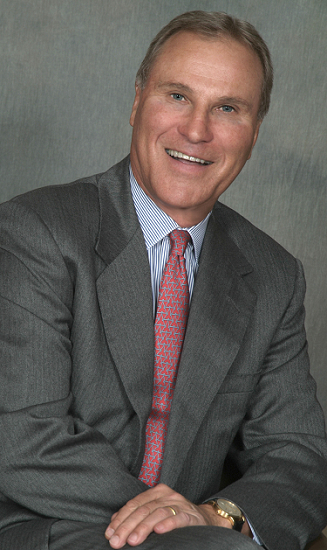Gary P. Brinson
Class of 2008
- Founder and Chairman The Brinson Foundation

Execution supersedes intention is a guiding principle for success.
Gary Brinson was born in 1943 in Seattle. His father was a bus driver, and his mother worked as a clerk at Sears. After graduating from Renton High School, Brinson enrolled at Seattle University, where he earned a bachelor's degree in finance in 1966.
Brinson paid for his college studies by working after school and on weekends at the Oberto sausage factory. He recalls that he was a "so-so" student, until he took a class taught by Dr. Khalil Dibee, who encouraged his students to reach for their full potential. Dibee remembered that Brinson would still have "traces of meat on his shoes, but that he came to class, accepted the challenge, and became an A student." Noting Brinson's interest in finance, Dibee encouraged him to pursue a master's degree. Dibee helped him obtain a teaching assistantship at Washington State University to finance his studies.
Years later, in 2004, Brinson surprised his mentor by donating $3.5 million to Seattle University to endow the Dr. Khalil Dibee Chair in Finance at the Albers School of Business and Economics. Brinson says, "A significant part of my success in life is attributable to Dr. Dibee's teaching and encouragement during my formative years at Seattle University."
Following graduate school, Brinson took a modest-paying job as an investment analyst for an insurance company in Connecticut. His work exposed him to world markets, and he noticed how markets outside the United States were rapidly developing and providing important diversification opportunities, while most U.S. organizations were focusing on domestic investments.
Brinson joined the First National Bank of Chicago in 1979 as chief investment officer. He become one of the first proponents for investing pension funds in a variety of global investments, including both domestic and foreign stocks and bonds, as well as private equity, real estate, and junk bonds.
In 1989, Brinson and several associates purchased First Chicago Investment Advisors from the bank and changed the name to Brinson Partners. They had attracted $36 billion in assets when the company was sold in 1994 to Swiss Bank for $750 million. Brinson stayed on as head of the company through Swiss Bank's merger with Union Bank of Switzerland. The merged organization formed the largest bank in the world, and Brinson was named to head the combined asset-management arm, overseeing more the $910 billion in institutional assets.
Managing more than $1 trillion in assets at one point in his career, Brinson became one of the world's most influential investment managers. His business acumen and original approach enabled him to avoid some pitfalls that had befallen other investors, including the collapse of Japanese stocks in the late 1980s and the decline of technology stocks in the late 1990s.
Brinson, along with George Russell Jr., Warren Buffett, and William Gross, has become one of the investment field's "living legends." In 1991, the Financial Management Association awarded Brinson its Outstanding Financial Executive Award. Likewise, in 1999, the Association for Investment Management Research presented him its Award for Professional Excellence.
After retiring in 2000, Brinson started his own private investment firm, GP Brinson Investments. He also established the nonprofit Brinson Foundation to support educational, public health, and scientific research programs that engage, inform, and inspire committed citizens to confront the challenges that face humanity.
The Horatio Alger Association is honored and grateful to be a recipient of one of the Brinson Foundation's many grants to nonprofit organizations. This grant has helped provide Horatio Alger scholarships for young people who have faced adversity.
